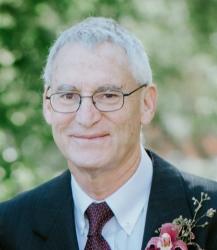The San Francisco Giants of the late 1970s and early 1980s gained national attention as the “God Squad.” But the Oakland A’s across the Bay had just as many born-again Christians on the team. One was catcher Jim Essian, a major leaguer from 1973 to 1984. He managed the Chicago Cubs in the 1991 season. This article is based on my interview with him in 1984.
Ten years as a MLB catcher would make anybody angry at the world. How would you like to wake up each morning knowing that a base runner will try to separate your head from your shoulders on a close play at the plate? Or might you break a few fingers trying to catch your ace pitcher’s forkball?

Courtesy Baseball Almanac
It’s not all glory being a catcher. And it’s a lot of hard work. But if you thought all those guys behind home plate had to get meaner and nastier to survive in the majors, you haven’t met Jim Essian of the Oakland A’s.
Essian, now in his tenth season in the big leagues, is about as nice a guy as you’ll ever meet. But if you’re trying to cross home plate and he’s got the ball, don’t expect tea and crumpets. The 6’1″, 187-pound catcher will make you pay the price.
A starter for the Chicago White Sox in his early years, Essian now works mainly in a reserve role for the A’s. When called upon, the 33-year-old veteran can still do the job. When A•s starting catcher Mike Heath was injured earlier that season, Essian caught seven games in a row and Oakland won five. Another opportunity came along a little later in the year, and Essian blasted a game-winning home run.
One of 13 children, Essian was always active in sports. The Detroit native played high school football, basketball, baseball, and hockey. He attended Arizona State only for a semester, as the Philadelphia Phillies signed him to a professional contract in 1970.
After five years in the Phils’ farm system, Essian was traded to the White Sox. In 1977, his first year as a starter in the big leagues, he batted .273 with 10 home runs in 114 games. The following spring, however, the Sox traded Essian to Oakland. That was when he began to think seriously, not just about baseball but about life. “I was pretty much wrapped up in myself,” he recalls. “And yet there was something in me that was searching for answers.”
The answers came from a friend, teammate Wayne Gross, who is now with the Baltimore Orioles.
Jim Essian: He invited my wife and me to Bible studies at his house, and I began to hear the truth of God’s Word. I had some questions answered about God, about sin, about salvation. I got my first Bible that summer and began to read for myself. At the end of that season, I knew I had a decision to make — that I would either come to the Lord, or not. I knew what I had to do. I had heard the truth and knew God was tugging on me. So I gave my heart to the Lord in a simple prayer.
Essian’s wife, Janey, also asked Christ into her life shortly afterward. Since then, the Essians, who have two children—Jimmy, 5, and Samantha, 2—have built their lives with God as the center.
After receiving Jesus as his Lord and Savior, Essian immediately began reading the Bible, praying, and attending church regularly.
During the baseball season, the players’ schedules make regular attendance at any church impossible. But Essian and some of his teammates are faithful attendees of the Sunday services Baseball Chapel offers right at the ballpark.
Essian stresses the fact that the Christian life is a relationship with God. “I’m learning more and more about God’s will for my life,” he says, “and more about how to rely on his strength. This is an everyday thing. He will show you something if you’re relating to God daily.” Essian is learning to share his faith in Jesus Christ with others, including his teammates and ballplayers.
Essian admits that his natural inclination is not to mingle. “Oftentimes I’ll want to go off in the corner and be by myself,” he said. “But God’s showing me to put the newspaper down … that he wants me to be a people person! He’s showing me not to be a ‘respecter of persons.’ It’s easy for us to minister to certain types of people and to forget about the others — those less attractive or less fortunate.”
Essian confesses that not being a starting player is a tough adjustment. “It’s difficult,” he says. “But it’s a role they want me to play — that of being someone able to come off the bench. Being a Christian enables you to handle all these different circumstances.”
Essian has definite ideas about what he wants to do during his playing days. “I want to manage a ballclub,” he says. “I believe a position will open for me, so I’m preparing for that.” In the off-season, Essian likes to relax by reading and playing golf. He’s also quite a music fan. “I love Christian music,” he shares. “I think it’s the greatest music in the world.”
Essian quickly points out that the Christian life is one of commitment. “You’ve got to be on one side or the other,” he stresses. “You’re either going to run out on your own, or you’re going to do it God’s way, with his help. If we build our foundation on the Rock, we’ll stand, and we’ll stand firm!”
______________
This article first appeared in Venture (September/October 1984).














